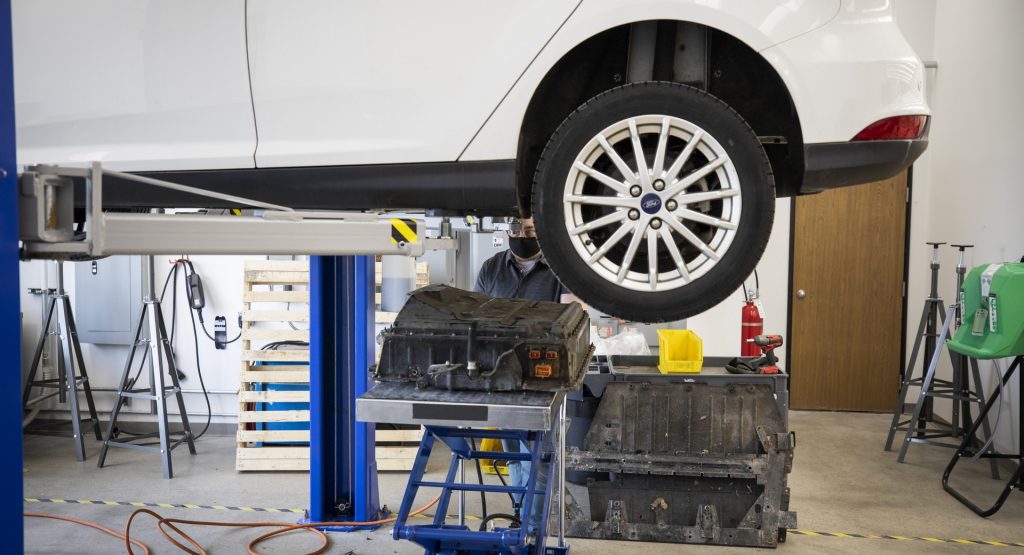Redwood Materials announced that it is launching a new program starting in California that is designed to give anyone with an EV easy access to its battery recycling facilities.
Ford and Volvo have both signed on to participate in the program, which aims to make EV battery recycling easier for the people who may be in possession of end-of-life EVs. Redwood Materials says, however, that it will accept any lithium-ion or nickel-metal hydride (NiMH) batteries from all EVs and hybrids coming off the road.
Founded by JB Staubel, who was also one of Tesla’s founders, Redwood Materials already counts Ford among its partners and says that 6 GWh of lithium-ion batteries pass through its California facility every year. That’s enough to power 60,000 EVs but the company is ramping up its efforts to recycle batteries in order to prepare for a new wave of EVs that it hopes will pass through its doors.
Read More: Ford Teams Up With Redwood Materials To Recycle Batteries
The company says it will work directly with dealers and dismantlers in order to identify and recover end-of-life battery packs and keep their materials out of the scrapyard. Redwood will start by offering the service in California and will safely package and transport the batteries to its facility in Northern Nevada where it will recycle them.
“We will demonstrate the value of end-of-life packs today and how we can steadily improve those economics as volumes scale up,” the company wrote in a statement. “Ultimately, our aim is to create the most effective and sustainable closed-loop system that physics and chemistry will allow for end-of-life battery packs to re-enter the domestic supply chain.”
Recycling the materials in batteries is important since mining them is often a difficult and dirty task. It has been noted that manufacturing batteries makes producing EVs more carbon-intensive than making internal combustion engine vehicles, so finding ways to reduce that carbon cost will be crucially important to make EVs truly green.
Finding materials closer to home is also an important political issue since it can help make countries like the U.S. more energy independent.
“We are excited to be strengthening our partnership with Redwood Materials in identifying solutions for electric vehicle batteries that have reached the end of their useful lives,” said Ford president and CEO Jim Farley. “This new program with Redwood Materials will help Ford lead America’s transition to sustainable and carbon-neutral EV manufacturing and ultimately help make electric vehicles more environmentally responsible and affordable for our customers.









